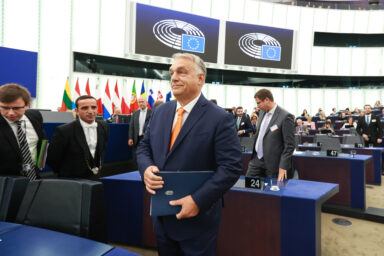The so-called brake clause could allow the European Union soften its ambitious 2040 climate target if Europe’s forests fail to soak up enough carbon dioxide to meet the goal. Member states are racing to approve the target just days before the key United Nations Climate Change Conference (COP30) kicks off in Brazil.
EU countries will attempt to approve the 2040 climate target on Tuesday, November 4 at the meeting of climate ministers. It is a last-minute race as Commission President Ursula von der Leyen will meet other world leaders already on Thursday, November 6 at an international conference preceding COP30.
More flexibilities?
According to Reuters, the latest draft negotiating compromise includes a new clause. It stipulates that if forests and other land-based activities that absorb CO2 emissions fall short, the EU would be allowed to propose an adjustment of the 2040 intermediate target corresponding to and within the limits of the possible shortfalls.
Over the past months, some member states have been raising concerns about the costs of climate action and possible negative effects on domestic industries. That is why the EU is considering various flexibilities and options to weaken the climate target. According to the original Commission’s proposal, greenhouse gas emissions should fall by 90 percent in 2040 compared to the 1990 level.
The latest move echoes a fresh proposal made by France which had demanded an “emergency brake” to reduce the 90 per cent emissions target by 3 per cents, if forests and the land-use sector underdeliver.
You might be interested
Carbon offsets spark controversy
The proposed EU’s 2040 climate target includes a limited possibility of so-called international climate offsets. These are credits derived from environment-friendly projects realized outside the EU. In total, such offsets could account for 3 per cent of the 2040 target at maximum starting from 2036.
Carbon offsets would delay essential emissions reductions, potentially helping to escalate the climate crisis beyond critical tipping points. – Carbon Market Watch
Though some member states, namely Germany, were strongly pushing the carbon offsets to be part of the 2040 target, many NGOs oppose that scheme. Carbon Market Watch, one of the biggest climate-oriented NGOs, called carbon offsets “fake”. The organization also argues that such measure would delay essential emissions reductions, potentially helping to escalate the climate crisis beyond critical tipping points.











